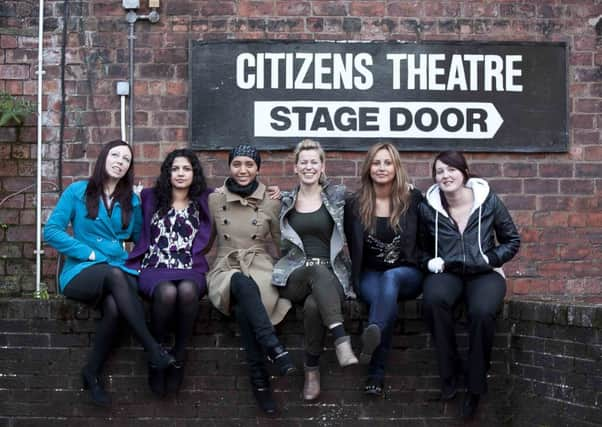Joyce McMillan: Can storytelling heal society?


It’s half past ten on a Thursday morning at the CCA in Sauchiehall Street, once known as the Third Eye Centre; and on stage, waiting to begin the first session of the day, sits a panel of four key people in the story of the Glasgow Girls, the true-life tale – ten years old now – of how a group of girls in a Glasgow secondary school launched a historic campaign against the immigration and asylum laws that had led to one of their friends being taken from her home at dawn, and held in the notorious Yarls Wood detention centre.
The panel includes Amal Azzudin, one of the original Glasgow Girls, who now works for the Mental Health Foundation in Scotland; there’s also Cora Bissett, who created the triumphant stage version of Glasgow Girls at the Citizens’ Theatre in 2012; Lindsay Hill, who made the original Glasgow Girls TV documentary; and Brian Welsh, who directed the Glasgow Girls TV drama. The occasion is Scotland’s first conference on the arts and mental health, organised by the Mental Health Foundation, by the Scottish Mental Health Arts and Film Festival and by See Me, the MHF’s current Scottish campaign to end discrimination against people with mental health problems.
Advertisement
Hide AdAdvertisement
Hide AdAnd although many of the 120 people present may be wondering, as the session starts, just what this story has to do with mental health, it soon becomes clear that there are many layers of connection with the whole issue of mental well- being. At the most obvious level, it’s about how inspired storytelling can help change public perspectives, encourage empathy and remove the stigma attached to excluded groups, whoever they are.
At the same time, Amal Azzudin’s work with women asylum seekers suffering mental health problems offers a sharp insight into how huge geopolitical forces, and the way they are handled by governments, can profoundly affect the mental welfare of individuals. And at the deepest level, there are questions about the power of storytelling to help heal a painfully fragmented society; if Charles Dickens could use fiction to make a harsh Victorian bourgeoisie empathise with starving young pickpockets in the streets, then what can we do, with art and fiction, to heal some of the most obvious wounds in our own society?
And that was only one session in a day which covered six areas of the relationship between mental health and the arts, from the portrayal of mental illness on screen, and the myth of the mad genius, to Gail Porter’s thoughts on how writing her memoir helped her deal creatively with the experience of bipolar disorder. There was also a session on the work and legacy of the remarkable Glasgow-based theatre-maker Adrian Howells, who died last year after a lifelong struggle with depression, and who pioneered unique forms of one-to-one theatre – including his internationally acclaimed work Foot Washing For The Sole, in which he washed the feet of audience members all the way from Glasgow to the Middle East – that tried to heal what he saw as the chronic lack of intimacy, gentleness, and time for each other, that plagues our fast-moving urban culture.
And if conclusions were difficult to reach, one thought emerged clearly from the day: that with one person in four now suffering mental illness at some point in their life, the experience of mental ill-health has become part of everyday living – the “dust of everyday life”, to quote the conference title; not so much a subject for theatre or any other art to tackle, but part of the essential landscape of the society that art addresses, reflects, and sometimes tries to change.
• Podcasts of the conference sessions will be available soon at www.mhfestival.com The next Scottish Mental Health Arts and Film Festival will take place in October
FOLLOW US
SCOTSMAN TABLET AND MOBILE APPS